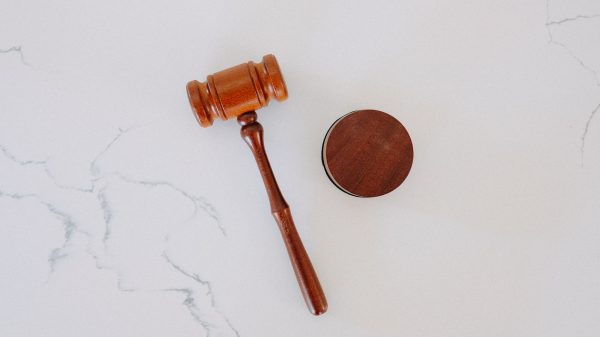The petition sought to declare a part of the IT Rules as void for allegedly violating several fundamental rights granted by the country’s constitution.
India’s largest news agency Press Trust of India (PTI) earlier this month filed a writ petition against the Indian government over the Information Technology (IT) Rules 2021. The IT Rules, which were notified on 25 February 2021, govern social media intermediaries, online streaming platforms, and digital news publishers.
The petition filed in Delhi High Court specifically challenges the provisions affecting publishers of news and current affairs content, arguing that they “usher in an era of surveillance and fear, thereby resulting in self-censorship” and violating the fundamental rights guaranteed by the Constitution of India and that they are not within the framework of the IT Act 2000.
A division bench of Chief Justice D N Patel and Justice J R Midha on Wednesday issued a notice to the government and tagged the petition with similar pleas filed by other online news outlets such as The Wire, Alt News, and The Quint. The same is scheduled for hearing on August 20. The court refused to grant interim protection to these outlets.
So far, nine petitions have been filed across courts in India challenging the rules applicable to digital news publishers. The government has filed a transfer petition to transfer all these cases to the Supreme Court.
Rules are ultra vires the Constitution
Violates freedom of speech and expression:
The petition argues that rules violate the freedom of speech and expression because they lead to self-censorship on two levels: 1) individuals will not engage freely in any content for the fear of facing consequences and 2) intermediaries featuring news and current affairs will “be trigger happy to pull down content while keeping a low threshold for any complaints received.”
Calling the media “the fourth pillar of democracy,” the petition argues that it is the right of the publishers and the citizens to be informed of a variety of viewpoints, and giving the state any power to regulate such content is against the public interest
The petitioner further argues that the rules “travel beyond the scope of reasonable restrictions as mentioned under Article 19(2)” because digital news media are already subject to civil and criminal laws enacted to date. “These rules are only meant to be a weapon for the Executive or the State to enter and directly control the content of online digital news portal,” the petition states.
Violates Article 14 of the Constitution:
Article 14 states that equals cannot be treated unequally. The petition argues that the rules violate this by creating an artificial distinction between print news media and online news media, and give the government the power to control the content in online news media by way of deletion, modification or blocking, censure, and compelled apology.
The petition argues that the government’s rationale that “online news sometimes report incidents differently as that from print media is clearly based on presumption and surmises,” and “does not satisfy the twin test (test of objectivity and rationale and intelligible differentia)” that is required to pass the muster of Article 14.
Violates principles of natural justice:
The petition also argues that by allowing the government to issues emergency orders to remove or block content without giving the publisher an opportunity to be heard, the rules violate the principles of natural justice.
Contrary to the principle of separation of powers:
The three-tier grievance redressal mechanism is also “unjust and draconian” because the powers have been given to extraneous bodies that are not the same as impartial courts. The ultimate power resides with the government through the Inter-Departmental Committee. Through this, the government has sought to merge the executive with the judicial power and “play a watchdog to every news content of digital media.”
The rules also create a parallel and extralegal adjudicatory mechanism through the government-controlled Inter-Departmental Committee that ultimately decides what content stays and what doesn’t. This means at every stage digital media “shall be subject to a Government diktat in addition to normal civil and criminal liabilities.” All this makes the rules contrary to the principle of separation of powers, the petitioner argues.
Anti-thesis to the principles of democracy:
Since the rules have been formed without much public consultation and “brought via a side door,” it is an “abuse of plenary powers enjoyed by the executive with the clear intent of choking the media, which is an anti-thesis to the principles of democracy,” the petition states.
Infringement of Right to Privacy:
The rules require publishers to not only address every grievance received by them but also submit reports of the same to the government. Furthermore, Level III of the grievance redressal system keeps a “hawk’s eye on every action” of the publisher. These are all in violation of the Right to Privacy guaranteed under Article 21 of the Constitution, the petition argues.
Can trigger unwanted adjudicatory mechanism:
The Code of Ethics uses vague terms like ‘”good taste” and “decency,” which can trigger the three-tier adjudicatory process, because some particular content may not be in “good taste” in the opinion of any individual, the petition states.
Rules are perverse:
The Code of Conduct portion of the rules is borrowed from the code of Journalistic Conduct as notified under the Press Council Act. However, the latter only serves as a moral guide to journalists without any state action or control. “A blanket import of the Press Council Regulation, dehors the essential attributes and incorporating the aspect of self-regulation is perverse,” the petition states.
Rules are ultra vires IT Act 2000
IT Act applies to intermediaries only: Arguing that the IT Act is applicable to the intermediaries only, the petitioner states that it is neither an intermediary nor seeking any safe harbor provisions for the content that it hosts and publishes. As such, all the civil and criminal laws including those under the IT Act apply to it and the government’s argument that digital news media is unregulated is incorrect. The new rules “seek to diversify and amplify the limited reading beyond all possible recognition, to allow impermissible state dictation and interference with the digital media and online publishers of news and current affairs,” the petition states.
Rules have to be in consonance with the parent Act:
There is no “unlimited right of delegation” and “a subordinate legislation cannot travel beyond the scope and object of the parent Act.” Any rules that are in the exercise of delegated power have to be in consonance with the parent Act if they are not, then they are ultra vires the parent Act, the petition argues.
IT Act does not recognise digital news media as a separate category:
The petition argues that the IT Act deals with electronic data/records and establishes conditions to recognise offences committed through the use of computer resources.” The IT Act does not recognize the digital news media as a separate category of entities and does not seek to subject them or their content to any set of special regulations,” the petition states
This is “like allowing the practice and procedure of plumbing to be regulated under the Water Act,” the petition states.
The petition further argues that no specific provision under Section 87(2) of the IT Act gives the government the power to enact rules for the regulation of online publishers of news.
Oversight mechanism is beyond scope of Act:
The petition argues that the powers granted by the oversight mechanism, including the setting up of an Inter-Departmental Committee to recommend “draconian measures such as ordering the deletion, modification of content or blocking the same” are beyond the scope of the IT Act.
There is also no power under the Act that empowers the Government to direct publishers to delete content or make changes or publish apologies, the petition states.
Government creating a backdoor for itself:
The petition argues that the government is violating the Right to Privacy by requiring publishers to submit “the list of subscribers and users with the Central Government along-with the Grievance Redressal report,” and also “seeking circumvention of industry-standard encryption tools and creating a backdoor entry for themselves to monitor the online activity of users.”
What is PTI seeking?
The petition filed by PTI prays for the following:
- Order or direction declaring Part III of the IT Rules 2021 as void for violating Articles 14, 19(1)(a) and 19(1)(g) of the constitution.
- Order or direction declaring Part III of the IT Rules 2021 as void for being ultra vires the IT Act 2000.
Also Read














